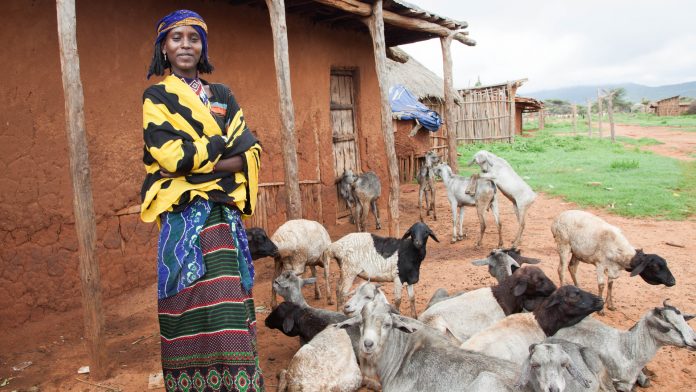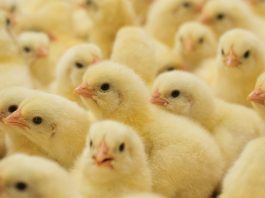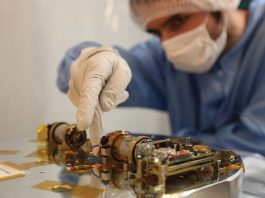Professor Andy Peters, programme director of the University of Edinburgh’s Supporting Evidence Based Interventions (SEBI) project, discusses livestock health and its relationship with contagious diseases.
Livestock health plays a crucial role in our lives. Livestock provides meat, milk, and eggs to help humans maintain a healthy diet. These animals create income opportunities for producers and farmers and, for the world’s poorest, provide a financial safety net. Livestock can catch diseases from wild species and share those diseases with us, which can impact the environment.
COVID-19 appears to have originated in bats – as did many other deadly diseases such as rabies, Ebola and SARS. While research teams are still working tirelessly to understand the virus, it is a lack of data on animal health, in this case wildlife, that has left the world exposed to a disease that can ‘jump’ the species barrier.
To recover from the COVID-19 pandemic and build resilience to other zoonotic diseases, policy-makers need more data about animal health as it relates to our own. The current gaps in data create challenges in maintaining human health on a global scale, as more than 60% of emerging infectious diseases in humans originated in animals. Addressing the holes in our scientific knowledge will therefore be crucial to help prevent future outbreaks. It can also minimise the direct and indirect consequences of disease outbreaks on health, livelihoods, and economies.
Livestock and wild animal health
Wild animals and livestock can act as efficient early warning systems to help track diseases: they share the same environment but spend more time outdoors than humans, increasing their exposure to disease. Given the health threats that humans and animals share, the latter are a good forecaster of public health and environmental threats to come. Such strategies that relate human to animal health – something we call “One Health” – are being severely under-utilised, limiting not only our ability to fight diseases, but also leaving us unable to fully address the impacts of the pandemic on livelihoods and food security.
COVID-19 has laid bare the consequences of a lack of investment in improving livestock data across a range of complex social and economic issues, especially in low and middle-income countries. As more than 100 million additional people are expected to go hungry this year due to lockdowns and economic recessions, evidence-based interventions cannot wait.
More accurate data on the prevalence of animal disease is important, but as we have seen with COVID-19 mortality and case reporting, it may not be sufficient to provide a full picture of health or infection risk. The same is true with mortality rates among livestock. Researchers from SEBI are working on alternative measures like new-born mortality to give a more accurate indication of livestock health. This can be useful for both human health and zoonotic disease, and livelihoods.
This strengthening of data on animal health could also eventually be adapted to create more accurate models for measuring human public health, and the potential long-term impact of diseases. Once collected and applied, better data can then help improve animal and human health, and as a result, economic prospects.
Animal health and food security
Livestock also play an important role in food security, rural livelihoods and in economic growth and resilience. However, its role is often poorly understood and underestimated. For example, pastoralism is the main source of income of an estimated 268 million people across Africa, especially in dryland areas. In times of crisis, detailed quantitative knowledge about the livestock sector should be readily available so that the best decisions can be made as to where to put resources.
One way to expand knowledge quickly is by using machine learning, which can help harvest data from the enormous amount of scientific literature on livestock health and development to help accelerate research and interventions. SEBI researchers, with colleagues from The Bayes Centre at the University of Edinburgh, and SAS, the leader in cutting-edge analytics, have devised an automated tool to extract and summarise evidence from academic publications to improve the quality and efficacy of livestock interventions in sub-Saharan Africa. Such a project could reduce the time it takes to complete a systematic literature review for a country from three months to a matter of hours and help respond to the urgency the pandemic has created more effectively.
Animal health is intrinsically linked to human health, whether through our shared diseases or through the livelihoods and prospects provided by livestock. The more we know about animal disease and the contributions of livestock to nutrition and economies, the better we can take care of our own health and protect vulnerable people’s livelihoods now and in years to come. If the world is to learn from the COVID-19 pandemic to prevent future shocks, both the public and private sector must recognise the importance of livestock data and commit investment to improving and making it open and accessible worldwide.









